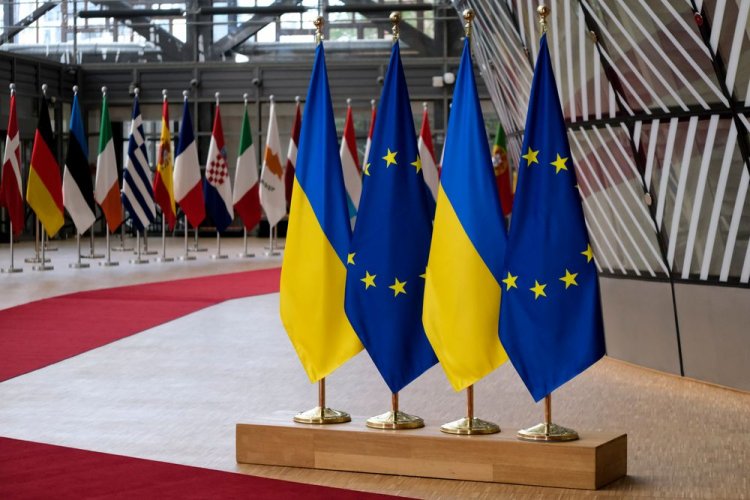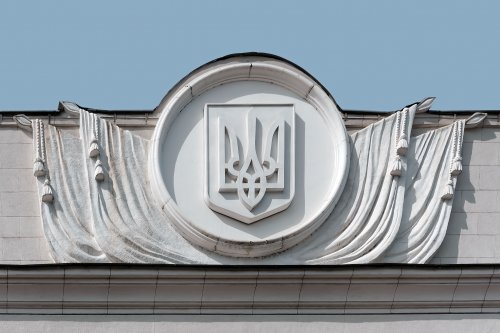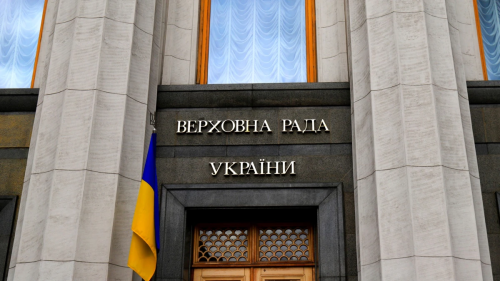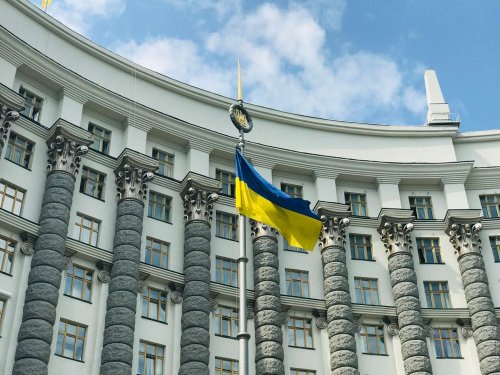On November 8-9, the European Commission will publish an annual report detailing how far the countries seeking to join the EU have progressed in meeting the necessary economic, legal, and other criteria. According to media reports, the preliminary assessment of Ukraine's efforts may be positive, but it remains to be seen how individual clusters will be assessed. As recently as 9 months ago, the Ukrainian government's efforts to improve environmental legislation were rated at the lowest possible level – 1 point. Therefore, EcoPolitics decided to find out whether we have a chance to improve the result.
For the green agenda they received 1
On February 2, 2023, the European Commission published an analytical report on Ukraine's capacity to fulfill the conditions of EU membership – how well we are able to implement EU legislation contained in the so-called acquis communautaire (more than 200 acts). This report draws on the knowledge and experience gained from many years of close cooperation between the EU and Ukraine and on Ukraine's responses to the questionnaire provided by our government in April 2022.
Environmental protection and climate change issues were analyzed under Chapter 27 Environment, which, together with energy, transport and trans-European networks, are grouped into the so-called Cluster 4 – Green Agenda and Sustainable Connectivity.
Ukraine was rated on a five-point scale, with 5 being "very good" and 1 being "initially prepared." And so, Cluster 4 was rated at the entry level, which means that our government was given a one for environmental reforms.
The main comments in the report concerned waste management, emissions control, approaches to climate policy, and environmental assessment. Of course, our partners noted our steps in developing environmental legislation, but in this part of the report we saw much more that has not been done or regulated than the steps that have been taken.
In order to correct the situation, in April the Ministry of Environmental Protection and Natural Resources convened an Interdepartmental Working Group for the initial assessment of the state of implementation of EU legal acts in the field of environmental protection, which gathered more than 200 participants. The results of the work were to form the basis of the project of the national program for the implementation of EU legislation in the field of environmental protection. However, the project has not yet been made public and there is no information about its formation.
As the coordinator of the Industrial Ecology and Sustainable Development Committee of the European Business Association sums up Olga Boyko, who joined this working group with her colleagues: "There were meetings and discussions, but for some reason the movement did not proceed."
9 months have passed since that time. Of course, this is not enough to completely reformat all legislation on environmental protection in accordance with EU norms. However, it is enough to significantly advance on the path of reforms.
How many documents still need to be implemented?
At the end of September, during the discussion "Preparing for EU Membership: Environment and Climate Change" organized by the Resource and Analysis Center "Society and Environment," Ivan Nagornyak, Deputy Director General of the Government Office for Coordination of European and Euro-Atlantic Integration, said that Chapter 27 consists of 911 acts. Of these, 717 do not require implementation, 156 are subject to implementation. But only 12 have been fully implemented.
To enable the public to keep track of the legal acts that need to be incorporated into our legislation, the Resource and Analysis Center "Society and Environment" has created a web portal "Compass – Your Green Guide to EU Membership", where the main ones have been collected.
According to the center, the list of EU regulations that Ukraine needs to implement to gain EU membership goes far beyond the existing obligations under the EU-Ukraine Association Agreement. It includes not only new acts, but also entire areas that were not previously binding. To improve understanding of what Ukraine needs to implement in the field of environment and climate change to gain EU membership, a web portal was created.
Currently, only 84 documents are posted there, but the database is still being filled.
What steps have been taken to implement EU norms since the last assessment?
According to the Agreement Navigator project from Yevropeiska Pravda, which records the implementation of the EU-Ukraine Association Agreement, our government has fulfilled the terms of this agreement in terms of environmental protection by almost half: 49,6%.
In particular, the Government, within the framework of the Agreement Pulse project, assessed the fulfillment of Ukraine's obligations under the Association Agreement with the EU on the item "environment and civil protection" at 80%. However, the progress in fulfilling the tasks for 2023 is still at 0%.
At the same time, as we noted above, to join the EU, we need to implement much more documents than those provided for in the Association Agreement, so the overall progress rate may be significantly lower.
Let's move on to the specific steps and documents adopted that brought us closer to EU membership during this period. For convenience, let's divide them according to the key observations of the European Commission, as outlined earlier.
In May, an important draft law No. 6004-d "On Ensuring the Constitutional Rights of Citizens to a Safe Environment for Life and Health" ("On Industrial Pollution") was adopted in the first reading, which will allow the implementation of European Directive 2010/75/EU and launch the long-awaited reform of industrial pollution reduction and control in Ukraine. However, this document has not yet been submitted for the second reading, as it is still going around in circles in the parliament.
In the same part, the Procedure for Preparation and Publication of the Report of the Authorized Body on Emissions and Transfer of Pollutants and Waste and the Procedure for Maintaining the National Register of Emissions and Transfer of Pollutants were also adopted.
In July, the Verkhovna Rada adopted the Law of Ukraine "On Ratification of the International Labor Organization Convention No. 170 on Safety in the Use of Chemicals at Work" in terms of emissions control. This means a ban on the production, import and export of most products containing mercury (Part I of Annex A to the Convention).
As for the area of waste, a key law for this area entered into force in July – "About waste management" . Then the government approved The procedure for developing regional waste management plans , which establishes unified approaches to strategic waste management planning in the regions.
On September 18, the Cabinet of Ministers registered the project in the Verkhovna Rada Law of Ukraine "On Packaging and Packaging Waste" (in compliance with Directive 94/62/EC "On packaging and packaging waste"). The draft law introduces extended producer responsibility and should create a system for the collection and recycling of packaging waste to reduce the final disposal of such waste in landfills. This will contribute to Ukraine's transition to a closed cycle economy. But for now it is difficult to predict the time of its adoption.
Of other issues, approved the state water monitoring program , including diagnostic monitoring of coastal and marine waters of the Black and Azov Seas, Strategy for the development of the fishing industry of Ukraine for the period up to 2030 and the operational plan of measures for its implementation in 2023-2025. On August 24, the Council adopted as many as two European integration draft laws "On human protection against the effects of ionizing radiation" and "On state regulation of genetic engineering activities and state control over the circulation of genetically modified organisms and genetically modified products to ensure food safety."
As you can see, there are not many European integration steps during this period. And there are only three approved draft laws in total.
What reforms have not been completed?
As Olha Boyko notes, the main failure was the reform of waste management, the draft law on which was adopted last year. As noted in the Ministry of Environment, the implementation of the Law envisages the development and further adoption of 17 projects of normative legal acts, 6 projects of orders and several sectoral draft laws. For this, the Ministry of Environment had a year of transition.
"The law entered into force on July 9, 2023. As of the beginning of November, that is, 1 year and 4 months after the adoption of the document, parliamentarians have approved only a few point by-laws, while key documents that regulate the activities of almost every second business in the country – for example, the transition for a new permit system and license conditions – developed, made public, but never adopted," says Boyko.
The formal approach in the previously adapted norms has not yet been corrected. For example, earlier Ukraine formally adapted its legislation to the EU Directive on Environmental Impact Assessment (EIA) and the Directive on Strategic Environmental Assessment (SEA). However, we have not developed a European approach to this assessment, and among the comments, the environmental assessment will probably remain in the future.
Can we fix a unit from the European Commission?
Olga Boyko is skeptical about the improvement of the result: "Unfortunately, I don't see any prospects of getting a better grade yet. And the reason for that is the lack of political will, as well as the insufficient institutional capacity of the specialized body."
However, some experts believe that in the long run we can improve the result, although we need to work more on it. From the words of the vice-president of the PAEU Association of Environmental Professionals Vladyslav Antipov, for a higher rating we need to complete the following key tasks:
- to adopt in the second reading the Law of Ukraine On Industrial Pollution (draft law No. 6004-д dated January 4, 2023);
- to adopt a by-law regulatory framework for waste management;
- create a system of trading quotas for greenhouse gas emissions.
"This will not make our assessment the maximum, but it will create significant progress in the implementation of environmental reforms. All these tasks are currently being carried out and I am sure that they will be successfully completed, – Antipov claims and adds, – Focusing on priority areas, we should not forget about such important aspects such as noise pollution, invasive species control, chemical waste management (PCBs/PCBs) and carbon storage. These areas are currently lagging behind, but work on them will be accelerated as soon as the key reforms are completed."
As we can see, there is still some progress towards the implementation of EU legislation. But it is mostly half-hearted and drawn out in every way. One gets the impression that we are fulfilling EU requirements – "for the sake of ticking" and not for real improvement of our environmental protection system. If during the implementation of the Association Agreement the partners still closed their eyes to certain formalities, then with the start of negotiations on joining the EU, the requirements will become stricter. Instead of prescribing beautiful non-working or half-hearted norms, we will have to really change the system. The sooner the government, in particular the Ministry of Environment, understands this, the better. Otherwise, our "one" risks turning into "zero", or even "minus".




